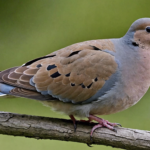Companion Plants to Protect Your Roses from Pests
When it comes to maintaining healthy roses, even the most experienced gardeners need to be proactive in protecting their plants from pests. One effective strategy is to companion plant with other species that can provide natural pest control. By selecting the right companions for your roses, you can create a harmonious garden ecosystem that deters pests and promotes overall plant health.
Euphorbias
Planting euphorbias is a great way to protect your roses from pests. They should be planted in the fall to ensure their root system is well-established before winter. If you prefer to plant them in the spring, make sure to provide regular watering during the first year. Euphorbias do not require any soil amendment, but the soil should be well-drained.
Different varieties of euphorbias can be chosen based on your region and preference. Some popular options include Euphorbia Characias, Euphorbia Blackbird, and Euphorbia Amygdaloides var Robbiae.
Geraniums
Geraniums not only add beauty to your garden but also act as natural pest deterrents for roses. They can be planted in late April or mid-May, ensuring a spacing of about 30 cm between each plant. Regular deadheading of faded flowers and adequate watering are sufficient for their maintenance.
There are various species of geraniums, but the care requirements are similar for all of them. Geraniums prefer sunny locations and ordinary, well-drained soil enriched with compost.
Lavenders
Lavenders are not only admired for their delicate fragrance but also for their pest-repellent properties. Prepare well-drained soil during the autumn season to ensure the survival and growth of your lavender plants. Plant them at a distance of 30 to 40 cm from each other.
Remember to prune only on branches that still have foliage. Removing spent flower spikes after blooming will prevent unnecessary stress on the plant. Lavenders thrive in sunny locations and well-drained soil.
Ferns
Ferns are excellent utility plants and can be used to activate compost. They prefer shady areas with moist and well-drained soil. Some species of ferns may also thrive in acidic soil conditions. Adapt your gardening environment based on the preferences of the fern species you choose.
Marigolds
Marigolds not only add vibrant colors to your garden but also act as natural insect repellents. Plant marigold seeds in spring or transplant seedlings in early May. To prevent fungal diseases, avoid overcrowding and limit excessive watering.
Marigolds are tolerant of various soil types, ranging from sandy to clayey. They thrive in sunny to partially shaded areas.
By incorporating these companion plants into your rose garden, you can create a natural defense system against pests while enhancing the beauty of your outdoor space. Remember to choose plant varieties that are suitable for your specific region and follow proper planting and maintenance techniques for optimal results.






